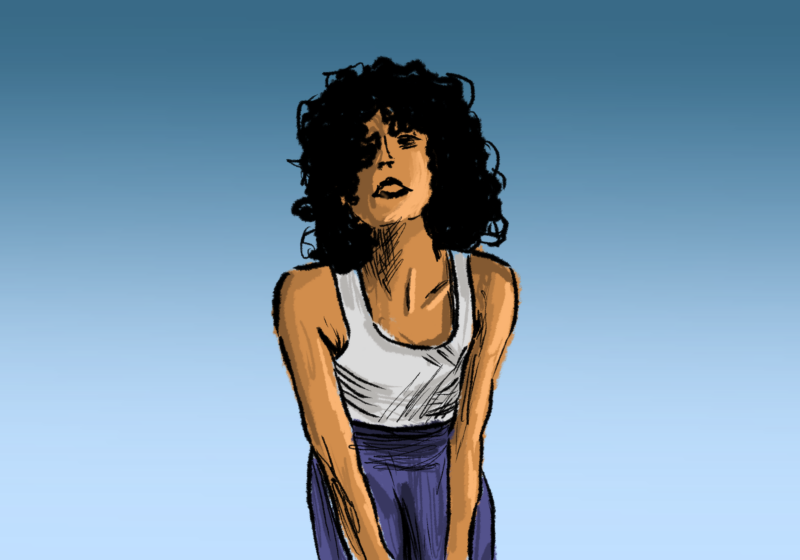Movie theaters, nightclubs, music festivals — could a stadium or an arena be added to the list? It could be, but that isn’t the point.
A week ago, the fifth-most-deadly American mass shooting hit Sutherland Springs, Texas. When thinking about how to curtail instances like these, this incident sets a precedent, one that may put a bill drafted in Washington state, which allows the carrying of concealed pistols in stadiums, to rest.
Currently, the bill violates the policies of both the NFL and the MLB, and both leagues have no intent of altering their current protocols. Their resistance is positive, and comforting in light of the current climate surrounding gun violence in America.
While neither league will grant patrons access to firearms and weapons on gameday, this does not mean fans will be any less protected. The NFL has been taking security incredibly seriously; it employed Cathy Lanier, the former chief of the Washington D.C. Metropolitan Police, a year ago to revive and oversee all the league’s security operations.
Additionally, the MLB responded appropriately to the Las Vegas shooting during the National League Division Series in October, expanding the number law enforcement officers present at the Diamondbacks’ Chase Field.
Before Pulse and Las Vegas received national attention and consideration, however, athletes had been long stricken by the perils of guns. Some were killed by such weapons, and others bobbled and abused their power.
Many remember the death of Steve McNair, the suspension of Gilbert Arenas, the foolishness of Plaxico Burress, and now the arrest of baseball’s only anthem-kneeler, Bruce Maxwell. All of these instances highlight issues prevalent in our violent society, consequentially provoking leagues and institutions to step up.
In response, the NFL has updated its “social responsibility training,” and it includes a segment dedicated to gun safety, where the league even suggested players to refrain from gun ownership. The MLB established a “Weapon-Free Workplace Policy” deeming guns, knives, and explosives impermissible in the clubhouse.
The NBA has responded to the Arenas incident with a partnership. In December 2015, Steph Curry, Chris Paul, and Joakim Noah participated in a PSA promoting “Everytown,” an organization committed to thwarting gun violence. While the partnership simultaneously might have been a response to targeted police brutality, the participation in the campaign sent a message to the fans and the sports domain.
In light of these responses, incidents such as the Burress accidental shooting are memorable even today. But what you may not remember, is that the first gold medal won in the 2016 Rio Olympics was from Ginny Thrasher, a 20-year-old shooter from Virginia. In Olympic competition, there are 15 shooting events, and Thrasher wasn’t the only American to emerge with a medal. Her teammate, six-time Olympian Kim Rhode, earned a bronze in Rio.
The two Americans embrace their image as shooters differently. Thrasher preferred that she not be used as some Republican political apparatus, while Rhode openly lends her support to the NRA.
Thrasher noted that the politics “distracted from the sport,” and this in itself raises some interesting questions.
As I’ve written previously, gun violence in America can only be ameliorated by referring to it as an issue of safety rather than one of autonomy and control. Guns will always be a pertinent facet of America and its society. The attachment and comfort American gun owners have dates as far back as the Wild West (which ironically enough had tighter gun laws than currently constituted). As long as the Heller Case stands, guns and the sentiments owners have for them will stay.
But what also lingers is 94 percent.
According to a July Quinnipiac poll, 94 percent of Americans endorse the mandate of background checks for all gun buyers. Our congressional representatives might twiddle their thumbs, but there also might be a real opportunity here for comprehensive legislation, which would in turn saves lives.
Americans fighting for guns must understand the risk they pose. Praying can be cathartic, but 12,000 yearly deaths deserve more actions than thoughts. Americans fighting for regulation must also understand guns represent a freedom that won’t disappear.
Personally, I’d call on Thrasher and Rhodes to educate through their sport. I’d like for them to help their discourse communities and those outside of them discern how guns can be made safer. If Thrasher desires to take politics and taboo away from her sport, this might be her best course of action.
Guns are tools, used to protect and used for sport. When abused, they cause tragedies greater than our struggles for autonomy.





